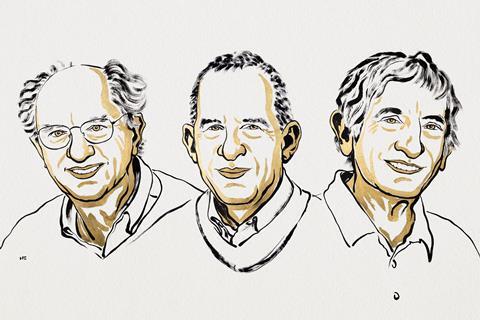Three scientists from California have been honored with the Nobel Prize in Physics for their research on quantum mechanical tunnelling at the macroscopic level. The breakthrough achieved by John Clarke, Michel Devoret, and John Martinis laid down essential insights that modern quantum engineering and the pursuit of quantum computing depend upon.
‘It’s fantastic to celebrate how century-old quantum mechanics continues to unveil new revelations,’ remarked Olle Eriksson, chair of the Nobel Committee for Physics. ‘Additionally, it’s incredibly beneficial, as quantum mechanics serves as the cornerstone of all digital technology.’
The research central to this year’s accolade was carried out in Clarke’s laboratory at the University of California, Berkeley, during the mid-1980s – at that time, Devoret was a postdoctoral researcher in the group, while Martinis was pursuing his PhD. Together, the trio designed experiments centered on electric circuits utilizing superconductors.
Specifically, they aimed to measure phenomena taking place across a Josephson junction – where two superconducting elements are divided by a layer of insulating material. The team detected a tunnelling effect that allowed a current to navigate this divide. They then employed microwaves to examine how the behavior of the system altered in response to certain energy levels.
While quantum effects related to individual particles had been explored earlier, the discoveries made by Clarke, Devoret, and Martinis were distinct in that they uncovered a macroscopic quantum effect – reliant on numerous particles acting in concert.
In the time following the Berkeley team’s experiments, other researchers have advanced the concept, creating methods to control the effect observed in the superconducting circuit. A particular use of this is in qubits that could serve as the foundation for future quantum computers.
The Nobel committee noted that the discovery ‘has opened avenues for the development of the next generation of quantum technology, including quantum cryptography, quantum computers, and quantum sensors.’
At a press conference following the announcement of the award, Clarke characterized winning the Nobel as ‘the surprise of my life’. ‘I’m utterly amazed,’ he continued. ‘It had never crossed my mind that this might lead to a Nobel prize.’
